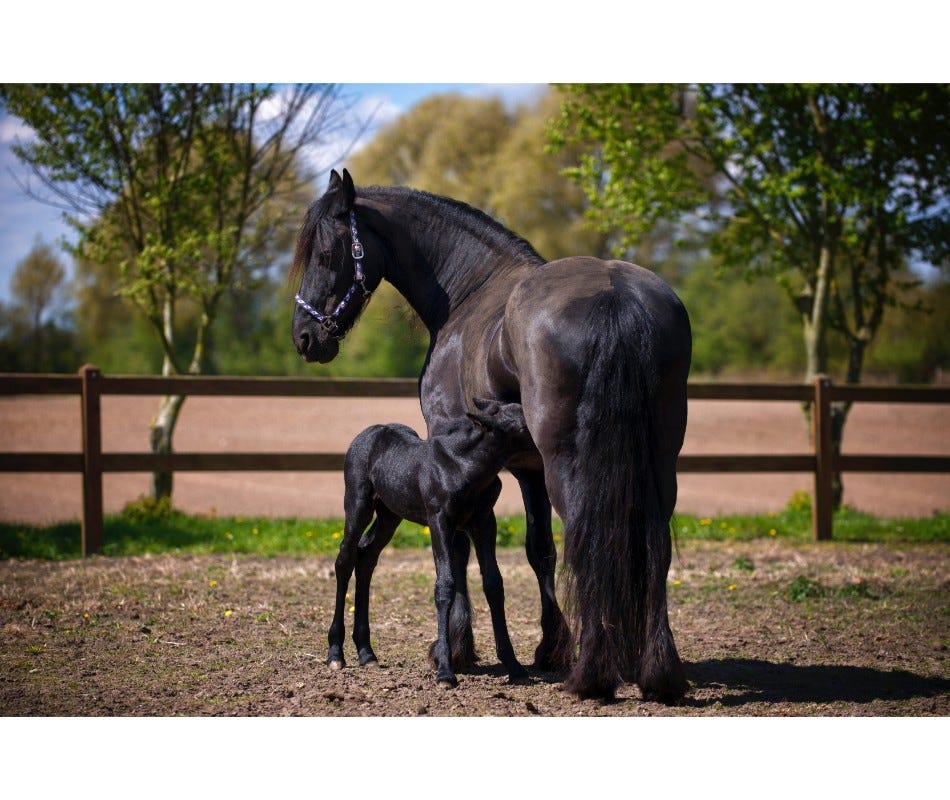We use cookies to make your experience better. To comply with the new e-Privacy directive, we need to ask for your consent to set the cookies. Learn more
Broodmare Nutrition throughout Pregnancy
Nutrition for broodmares is normally isolated into the following cycles or phases.
- conception,
- early gestation,
- mid to late gestation and
- lactation.
A mares gestational period is around 11 months and then they are required to support their foal nutritionally for the first 6 months of their lives.
Making nutrition a priority throughout the mares life will assist her reproduction cycle and balance, maximising her chances of falling pregnant at the start of the season. This will reduce cycle issues when it’s time to mate them to a stallion of your choice.
Nutrition through Conception and Early Gestation
Your broodmare needs to be in peak physical condition in order to have her conceive at the start of the breeding season. To optimise the nutritional requirements through the conception phase feed your Broodmare a quality forage and supplement that is high in vitamins and minerals. This diet will provide all the energy, protein, minerals and vitamins your mare needs to get this pregnancy off to the best start.
A misconception is that your mare needs to have larger quantities of forage during this period. This will lead to her becoming overweight and will not necessarily assist the development of the foal.
Mid to Late Gestation
Even though it’s still vital to keep your broodmare on a high quality diet, she will sometimes be disinclined to increase her portions as the foal grows and digestive area is restricted.
This is where it is vital that whatever she consumes be of exceptional quality to minimise any nutritional deficiencies.
Lactation and Recovery
Once your foal has been delivered it is vital that your mare has a diet high in protein, calcium, energy and phosphorous.
This will not only sustain her throughout the lactation period but also assist in the recovery of her reproduction system so that she is in peak condition for her next foal.
Many make the mistake of not adjusting her feed intake when she is lactating, this can cause your broodmare to become underweight and slow down her recovery.
If you are unsure of quantities required and it does differ a little horse to horse then consult either an equine nutritionist or your veterinarian. They can help you build and then modify a quality eating plan.









Validate your login